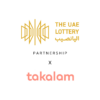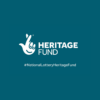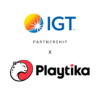Norway’s sovereign wealth fund, the world’s largest with $1.8 trillion in assets, is embarking on a meticulous review of its holdings in cryptocurrency companies and gambling operators. This unprecedented initiative, spearheaded by the fund’s Council on Ethics, aims to ensure that these sectors adhere to the highest ethical standards. Companies failing to comply may face severe consequences, including exclusion or public watchlisting.
A Closer Look at the Sovereign Wealth Fund’s Ethical Framework
The Norwegian fund holds stakes in approximately 8,700 companies globally, owning 1.5% of all listed shares worldwide. Operating under a rigorous ethical mandate, the Council on Ethics continuously evaluates these companies for adherence to socially responsible practices. Its recommendations can lead to significant actions, including divestment or placing companies under scrutiny.
In recent years, the fund has excluded firms linked to severe environmental harm, corruption, and human rights violations. Now, the Council on Ethics is turning its focus to industries seen as high-risk: cryptocurrency and gambling.
Why Crypto and Gambling Are in the Spotlight
High Risks in Crypto and Gambling Industries
Cryptocurrency and gambling sectors pose unique ethical challenges. These industries are often associated with issues such as money laundering, fraud, and addiction. According to the Council, heightened scrutiny is necessary to prevent potential harm and ensure these companies contribute positively to society.
Among the fund’s significant investments in these sectors are:
- Coinbase: Holding a 0.83% stake worth $453 million.
- Flutter Entertainment: A 2.13% stake valued at $691 million.
- MGM Resorts: A 0.87% stake amounting to $121 million.
These investments highlight the fund’s broad exposure and the critical importance of maintaining ethical compliance within its portfolio.
Ethical Standards and Potential Outcomes
The Council’s investigations are not merely symbolic. Companies found lacking in ethical compliance may face:
- Divestment Recommendations: The fund may sell its holdings in a company to avoid reputational and financial risks.
- Engagement Processes: Companies are often allowed to rectify their practices before harsher measures are taken.
This process ensures a balanced approach, addressing ethical concerns while minimizing market disruption.
Implications for the Global Gambling Industry
Norway’s Gambling Framework and Future Reforms
Norway maintains a state-controlled gambling monopoly through Norsk Tipping and Norsk Rikstoto, overseeing lotteries, sports betting, and online gaming. However, there is growing momentum for reform. The Conservative Party has proposed a shift toward a fully licensed gambling market by 2028.
Supporters of this plan argue that a regulated market would:
- Enhance Consumer Protections: Ensuring safer gambling environments.
- Reduce Black Market Activity: By providing legitimate, monitored alternatives.
- Boost Tax Revenue: Allowing for increased public investment.
Norway aims to follow in the footsteps of its Scandinavian neighbors, such as Sweden and Denmark, which have successfully transitioned to more liberalized gambling industries.
The Global Push for Ethical Compliance
Norway’s actions could serve as a model for other sovereign funds and institutional investors. As gambling and crypto sectors grow, they must navigate complex ethical landscapes. The fund’s leadership in enforcing stringent standards could inspire broader reforms, promoting greater accountability worldwide.
Challenges and Opportunities for Crypto Companies
The Volatile Nature of Cryptocurrencies
The cryptocurrency market, valued at trillions of dollars, is inherently volatile. While offering tremendous potential for innovation and profit, it is also fraught with risks of fraud, market manipulation, and environmental concerns, especially regarding energy-intensive mining operations.
The Norwegian fund’s scrutiny places added pressure on crypto firms to adopt sustainable practices and enhance transparency. Failure to do so could lead to exclusion from one of the world’s most significant investment portfolios.
Balancing Innovation with Responsibility
Crypto companies are now tasked with proving that their operations align with ethical norms. This includes implementing measures to prevent money laundering and fraud while supporting broader environmental and social goals.
Broader Implications for Investment Strategies
The ethical review underscores a growing trend among institutional investors to prioritize Environmental, Social, and Governance (ESG) factors. By holding companies accountable, Norway’s fund reinforces the importance of ethical governance as a core component of sustainable investment.
Potential Market Reactions
The outcomes of these reviews could significantly impact market dynamics. Companies that successfully align with ethical guidelines may attract more investment, while those falling short could face dwindling investor confidence and share value declines.
Conclusion: The Sovereign Wealth Fund
Norway’s sovereign wealth fund is setting a new standard for ethical oversight in high-risk industries. Its rigorous review process not only protects its financial interests but also champions a broader commitment to societal well-being. This proactive approach could pave the way for enhanced sustainability and accountability across the global financial landscape.
FAQs About Norway’s Sovereign Wealth Fund Targets Crypto and Gambling Sectors
1. What is Norway’s sovereign wealth fund?
Norway’s sovereign wealth fund, officially known as the Government Pension Fund Global, is the largest in the world, managing assets worth $1.8 trillion. It holds stakes in approximately 8,700 companies globally and owns 1.5% of all listed shares worldwide.
2. What is the purpose of the Council on Ethics?
The Council on Ethics ensures that the companies in the fund’s portfolio adhere to strict ethical guidelines. It evaluates firms for compliance with environmental, social, and governance (ESG) standards and can recommend divestment or public watchlisting for non-compliant companies.
3. Why are cryptocurrency and gambling companies under review?
The cryptocurrency and gambling sectors are considered high-risk due to their association with issues like money laundering, fraud, addiction, and environmental concerns. The Council aims to ensure these industries operate ethically and responsibly.
4. What companies are affected by this review?
Significant holdings under review include:
- Coinbase: 0.83% stake, valued at $453 million.
- Flutter Entertainment: 2.13% stake, valued at $691 million.
- MGM Resorts: 0.87% stake, valued at $121 million.
5. What actions can the Council on Ethics take against non-compliant companies?
The Council may recommend:
- Divestment: Selling the fund’s holdings in the company.
- Public Watchlisting: Highlighting companies that do not meet ethical standards.
- Engagement: Allowing companies to address concerns and amend practices before harsher measures are implemented.
6. What are the implications for Norway’s gambling industry?
Norway currently operates a state-controlled gambling monopoly through Norsk Tipping and Norsk Rikstoto. However, there is growing support for market liberalization by 2028, which could enhance consumer protections, reduce black market activity, and increase tax revenues.
7. How does the fund’s ethical review impact the cryptocurrency industry?
The review places pressure on crypto companies to adopt sustainable and transparent practices. Firms that fail to meet ethical standards could be excluded from the fund’s portfolio, potentially affecting their market value and investor confidence.
8. What broader trends does this review signify for global investments?
The fund’s actions reflect a growing emphasis on ethical investing. Institutional investors are increasingly prioritizing ESG factors, holding companies accountable for their societal and environmental impacts.
9. What are the possible market reactions to this ethical review?
Companies that comply with ethical guidelines may see increased investment and improved market performance. Conversely, those that fall short could face reduced investor confidence, divestment, and potential declines in share value.
10. How does this align with Norway’s sustainability goals?
Norway’s initiative aligns with its broader commitment to sustainability and ethical governance. By enforcing stringent standards in high-risk sectors, the fund aims to promote responsible corporate behavior and long-term societal benefits.


















